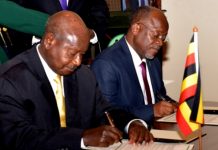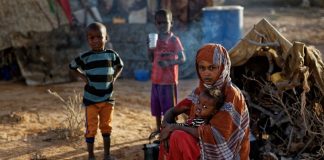Environmental experts know what they attribute to Climate change. But the lay man attributes whatever that causes droughts and food shortages to climate change, in the belief that its impact on people’s lives would be understood. But, that impression does not click. In East Africa, the concomitants of poverty and ignorance can easily be differentiated from the fall-out from Climate change.
Now, if an estimated one million five hundred thousand girls between 13 and 18 in Malawi have to be given out in early marriage because their families cannot feed them, should it be attributed to Climate change?
But reports say that millions of people are at risk of dying from starvation in East Africa, partly due to climate change-related drought. According to the reports, seventy million people in forty-five African countries will likely face food shortages and need food aid, as a result of issues connected to the changing climate. Experts have warned that the problem would worsen next year.
This explains why the United Nations Climate Change Conference (COP 23) held last month served as a forum for different groups to throw up their agenda while projecting some initiatives and achievements. The conference certainly influenced governments and non-governmental organizations, the UN Food and Agricultural Organization, FAO, as well as researchers to advance proposals aimed at mitigating climate change.
Various ideas such as agricultural practices that had stood the test of time, improved drought tolerant seed varieties, use of mobile apps that deliver timely weather and other climate-related advisory services, insurance schemes to help cover losses and damage which crop up due to climate change were thrown up and thoroughly examined.
The typical African dilemma reared its head there. Although, the dimensions of the various issues and extent of the initiatives were clearly identified, the resolution of the situation is not in sight and as reports say the times are getting worse. Pessimists who frowned at the fine and lofty theories distributed by stakeholders such as the UN agencies and national governments may have been proved right. Sentimental attachments cannot take the place of tangible initiatives needed at the community level.
So, it is like going back to the drawing boards. And fresh questions will arise. For instance, how does each African country or community find effective ways of countering the specific challenge caused by Climate change? And what are the issues that must be divulged entirely from Climate change to enable experts to devise and adopt some of the practices, innovations and solutions that could tackle the situation?
In the case of East African communities, environmentalists suggest that it is imperative to know the challenges that hinder farmers from adopting proven solutions. Granted that in practice, many people lack the resources such as land, funds and labor, needed for the implementation of the solutions, Africa needs to change its approach first.
There are instances where operators may have the resources but lack the knowledge and the required skills to correctly implement the vital climate innovations and practices. It is only after a comprehensive analysis of the whole situation that one can truly attribute the early marriage phenomenon in Malawi to the ills of climate change.


















